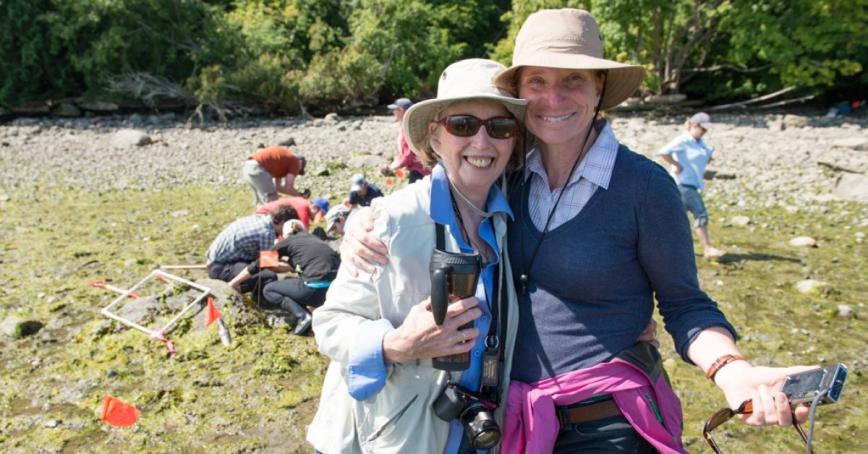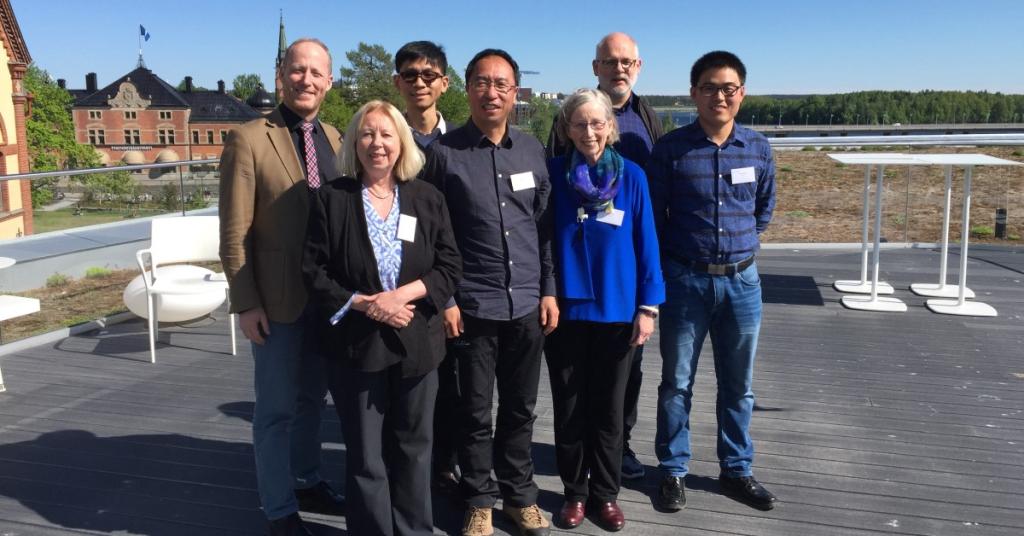Topics
Featured
Share online

Northern regions are particularly and disproportionately vulnerable to the effects of climate change. These regions are warming three times as fast as the global rate due to a phenomenon known as Arctic amplification.
Arctic and sub-arctic communities are designing inventive, location-specific ways to adapt to a rapidly warming environment, says Leslie King, professor in the School of Environment and Sustainability at Royal Roads University.
Alongside colleagues Astrid Ogilvie, senior research associate for the Institute of Arctic and Alpine Research at University of Colorado Boulder, and Walter Lepore, assistant professor at University of Victoria, King spent the last five years working on a Social Sciences and Humanities Research Council-funded Insight project aimed at building adaptation resources for governments and residents of northern coastal communities.

Leslie King (RRU, front right) stands beside Walter Lepore (UVic), postdoctoral researcher for and Astrid Ogilvie (CU Boulder), a co-applicant for NORSEACC, alongside researchers working on the ARCPATH project.
Northern Knowledge for Resilience, Sustainable Environments and Adaptation in Coastal Communities is an international research project that uses in-depth case studies to analyze how local, Indigenous/Traditional and scientific knowledge is used to promote resilience in Arctic and sub-arctic locations in Canada, Iceland, Norway and the UK. King is also an international research partner on NORSEACC’s sister project, Arctic Climate Predictions: Pathways to Resilient, Sustainable Societies, which aimed to help northern communities predict local impacts of climate change.
“The purpose of [NORSEACC] was to learn from the ways people have adapted and planned their way out of these impacts,” says King. “So, it's a much more optimistic project — not just documenting all the horrors of climate change, but rather all the very inventive ways northern communities have mitigated and adapted to climate change and biodiversity loss.”
The research team found that their analyses were acutely different on a case-by-case basis because of the specific environment, history and culture of each community.
“All the [places] that we've been looking at are isolated in one way or another — either because of their northern location or because they’re on islands and so they've been forced into unique climate solutions which have been fascinating — and those climate solutions have come right out of their past and their culture,” King explains.
King shares that some communities, like Tuktoyaktuk, Canada, are contending with a loss of infrastructure due to thawing permafrost. The “permanently” frozen ground serves as the remote community’s mode of transportation, as well as storage for their winter’s supply of food.
She explains that others, like Orkney, UK, have energy needs, which they resolved by applying the “Orkney Way” — a community-based way of living that’s a big part of their culture. From subsidized electric vehicles, wind, ocean and solar energy, Orkney generates more than 100% of its electricity in renewable sources.
In Iceland, King says their adaptive solutions are deeply embedded in their history, culture and relationship with the environment an environment characterized by ice and volcanic activity. Responses to those environments have been documented for centuries by Icelandic sagas and other literary reports.
“Nobody’s solution is going to work for somebody else,” says King about the context-specific adaptive solutions of northern communities. “But we can all learn from them in general.”
Though more than five years in the making, King’s research journey is far from over. Her next project is the natural progression of NORSEACC — a collaborative research project titled LEARN: Learning from Responses to Rapid Change in Northern Communities: Past and Future.
LEARN will build on the insights of NORSEACC to provide practical applications to be used in climate responses in the North and elsewhere.
Learn more or enroll in the Master of Science in Environmental Practice program.